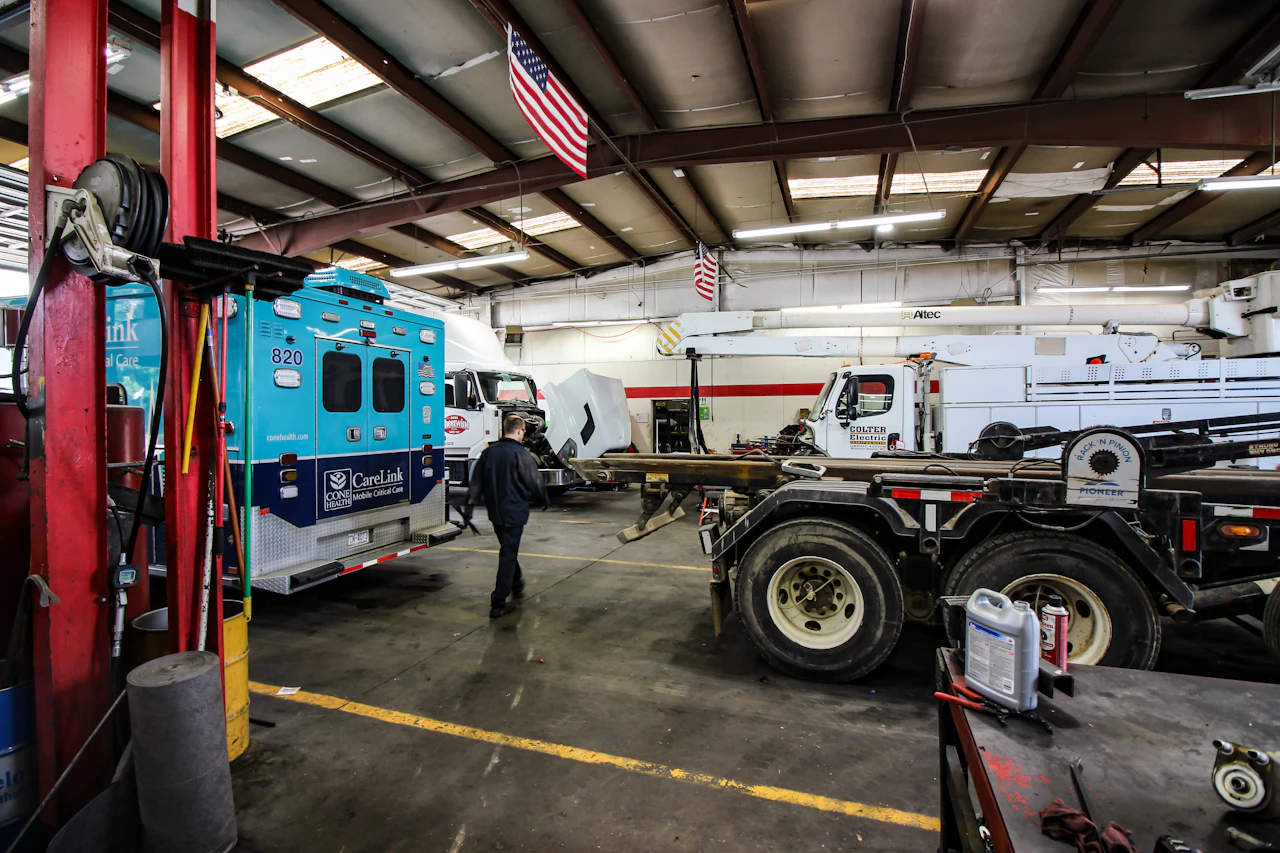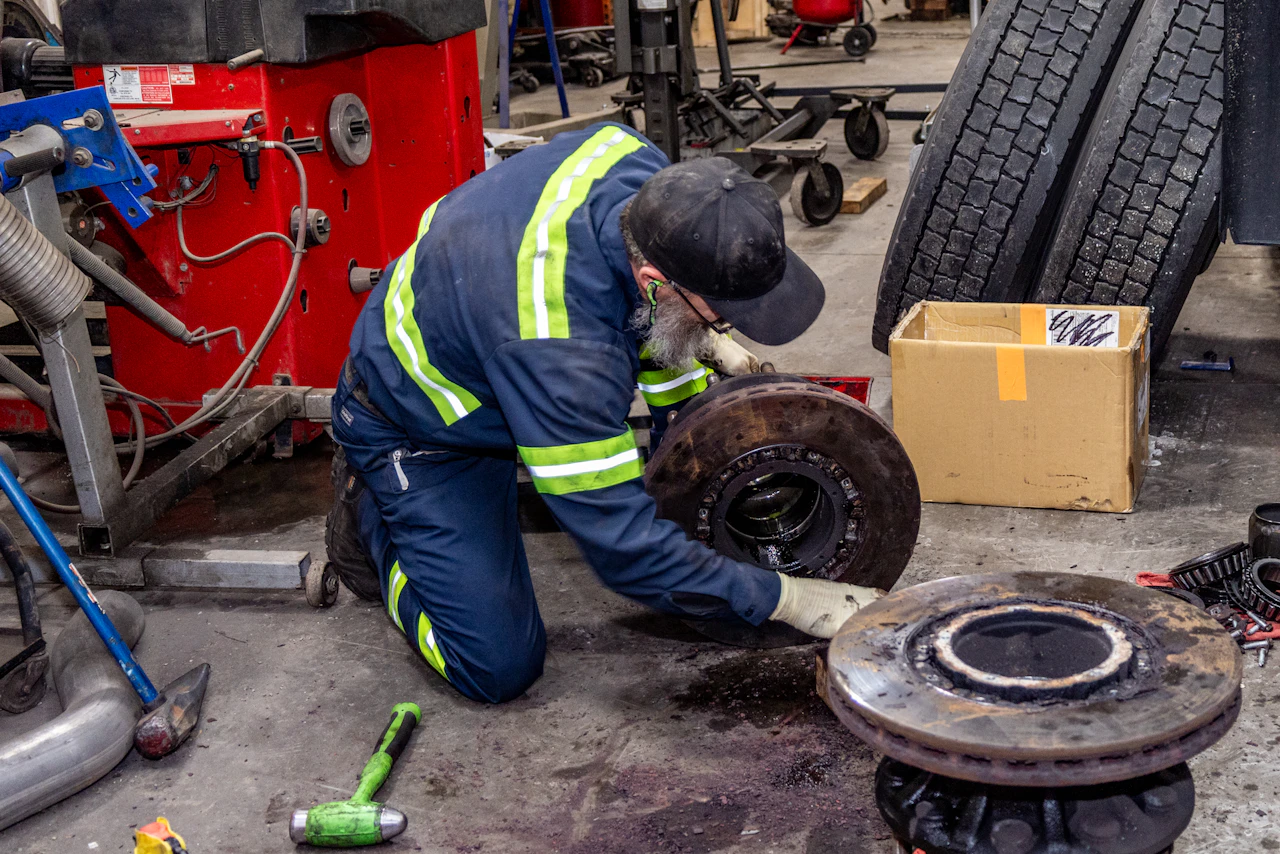Introduction
Heavy equipment is the backbone of industries like construction, agriculture, mining, and logistics, tackling everything from earthmoving to material handling. These machines are built for durability, but their constant exposure to extreme loads, harsh environments, and high operational stress makes routine maintenance a necessity, not an option.
Without regular servicing, equipment efficiency declines, breakdowns become frequent, and repair costs skyrocket. A neglected machine consumes more fuel, experiences excessive wear, and poses serious safety risks. This guide explains why servicing heavy equipment on a structured maintenance schedule maximizes uptime, improves efficiency, and cuts long-term costs.
The Impact of Preventative Maintenance on Equipment Longevity
Heavy-duty machines are designed to last thousands of operating hours, but only if they receive proper care. Routine servicing helps extend equipment lifespan, delaying expensive replacements and keeping performance at its peak.
Preventative maintenance includes fluid changes, filter replacements, lubrication, system calibrations, and structural inspections. These small, routine actions prevent major failures, ensuring that engines, hydraulics, and powertrains operate smoothly.
Failing to service heavy equipment doesn’t just shorten its lifespan—it leads to higher wear and tear, unplanned downtime, and skyrocketing repair expenses. A proactive approach to maintenance can double the lifespan of critical components while maintaining resale value.
The Cost of Neglecting Heavy Equipment Maintenance
Skipping scheduled servicing might seem like a way to save money in the short term, but it results in more expensive repairs, downtime, and lost productivity in the long run.
Expensive Component Failures
For example, a poorly maintained hydraulic system can lead to contaminated fluid, causing pumps and seals to fail. Instead of a low-cost fluid change, an operator is now facing a multi-thousand-dollar pump replacement.
Engines that run on dirty oil or clogged filters experience accelerated wear, increasing the chances of complete engine failure. Replacing an engine is one of the costliest repairs in heavy equipment, often exceeding $10,000 to $30,000, depending on the machine.
Increased Downtime and Lost Productivity
A machine that breaks down in the middle of a project creates delays, idle labour costs, and lost revenue. In industries where deadlines and efficiency drive profitability, unexpected downtime is a major liability.
Equipment failures not only affect the current project but can lead to contract penalties, increased fuel costs, and logistical challenges. Regular maintenance prevents these issues by catching problems early, allowing operators to schedule repairs before they cause operational disruptions.
Safety Hazards and Compliance Violations
Heavy equipment failures can result in catastrophic accidents, especially in high-risk environments like construction sites and mining operations. A faulty brake system, hydraulic leak, or steering issue puts both operators and surrounding workers at serious risk.
Additionally, failing to meet industry safety standards can result in OSHA violations, regulatory fines, and increased insurance premiums. Regular servicing ensures that equipment meets compliance requirements and operates safely, reducing liability and enhancing workplace safety.
Key Areas of Heavy Equipment Servicing
Engine and Lubrication System
Engines power everything from excavators to bulldozers, and proper lubrication is essential to prevent excessive wear and overheating. Oil and filter changes should be performed at manufacturer-recommended intervals to maintain optimal engine efficiency.
Neglecting oil changes can lead to sludge buildup, loss of lubrication, and irreversible engine damage, resulting in costly overhauls or replacements. Monitoring coolant levels, belt tension, and fuel filters also ensures smooth operation under heavy loads.
Hydraulic System Maintenance
Hydraulic systems power lifting arms, booms, and cylinders, making them a core component of most heavy equipment. Over time, hydraulic fluid can become contaminated with dirt and metal particles, leading to pump wear, hose leaks, and seal failures.
Routine fluid checks and filter replacements keep the system running efficiently, while periodic pressure tests help identify issues before they cause a major breakdown. Operators should also inspect hoses for cracks, leaks, or swelling, as hydraulic failures can be costly and dangerous.
Undercarriage and Track System Inspections
For tracked machines like dozers, loaders, and excavators, the undercarriage accounts for up to 50% of total maintenance costs. If tracks, rollers, and idlers are not regularly inspected, they wear down unevenly, increasing fuel consumption and reducing traction.
Regular cleaning, tension adjustments, and component lubrication help extend track life and improve machine stability. Ignoring track maintenance can lead to costly component replacements and even structural damage to the chassis.
Brake and Suspension System Checks
Brake systems must be routinely inspected for wear, leaks, and air pressure stability. Heavy equipment that operates on uneven terrain or steep inclines puts additional stress on brake components, making routine servicing even more important.
A well-maintained suspension system absorbs shocks and prevents structural strain on key components. Checking shock absorbers, linkages, and bushings regularly prevents frame damage and enhances driver comfort.
Electrical and Diagnostic System Maintenance
Modern heavy equipment is heavily reliant on electrical systems, including sensors, GPS trackers, and automated control modules. Battery voltage checks, wiring inspections, and software updates are essential to ensure that these systems function properly.
Neglected electrical systems can cause malfunctions in safety features, fuel efficiency, and engine performance, leading to costly downtime and inefficiency.
Implementing a Preventative Maintenance Program
A well-structured preventative maintenance plan reduces downtime, prevents costly failures, and improves equipment reliability.
Follow Manufacturer Guidelines
Every machine has a recommended service schedule from the manufacturer. Sticking to these guidelines ensures that equipment is maintained at the right intervals, preventing premature wear.
Keep Accurate Maintenance Records
Documenting every oil change, filter replacement, and inspection helps fleet managers track performance trends, plan repairs, and identify recurring issues. Digital maintenance logs improve record-keeping efficiency and help prevent missed service dates.
Train Operators in Basic Equipment Care
Operators are the first line of defense against equipment failure. Training them to conduct daily inspections, report issues, and follow proper operating procedures reduces wear and extends component life.
Use Condition Monitoring Tools
Modern telematics systems allow fleet managers to monitor equipment performance, fluid levels, and fault codes in real-time. Investing in remote diagnostics and predictive maintenance software can reduce repair costs and increase uptime.
Conclusion
Regular servicing is the key to maximizing the lifespan, efficiency, and safety of heavy equipment. Without preventative maintenance, machines experience higher repair costs, reduced fuel efficiency, and increased downtime, all of which hurt the bottom line.
By following a structured maintenance schedule, keeping detailed records, and investing in operator training, fleet managers can reduce breakdowns, improve safety, and extend equipment lifespan.
For expert heavy equipment maintenance and repair services in Charlotte, NC, Durham, NC, Greensboro, NC, Statesville, NC, La Grange & Kinston, NC, Dallas-Fort Worth, TX, and Carlisle, PA, contact National Fleet Management today.

